Coming out: Advice for friends and family
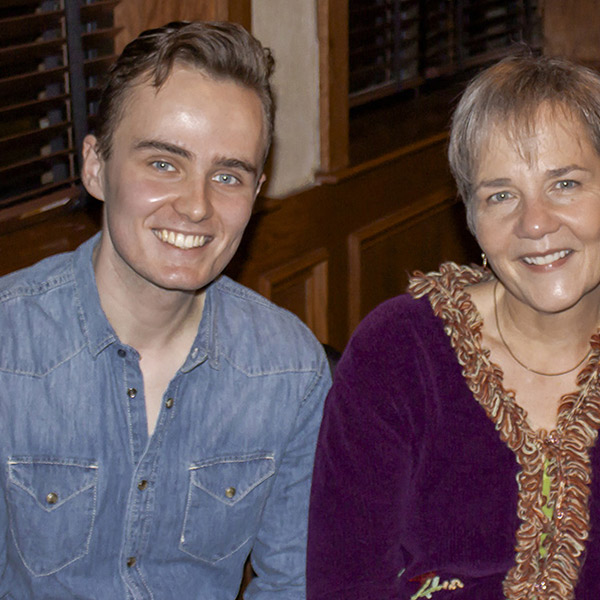
On a sunny April day six years ago during a trail walk, my son told me he was gay. He was 14. Outwardly, I responded calmly with love and words of total acceptance. Inwardly, I was shaken to the core. Not because I objected to the news or doubted his conviction, but because I instantly had to adjust to the shattering of a future I didn’t even know I’d created. One in which my son was safe from ignorance and discrimination. One not filled with continual coming-out conversations for him or for his father and me. But here it was.
Despite feeling knocked off balance, I managed to set that aside and focus on my son. What mattered was making sure he felt loved and supported. Whatever was happening to me could be sorted out later. I spent the next week scouring the Internet for information that could help me understand what I was feeling and what my son might be going through. I talked with friends about their coming-out experiences and asked for their advice.
Inspired? Create and share by tagging @hallmarkstores.
Over the following weeks, months and years, our lives expanded. When we let go of unexamined expectations, a bigger world opened up to us. Our little family is closer than I could have hoped. Our son continues to be the absolute joy of our lives, and we are so thankful that we have been given the gift of knowing and loving him completely.
My personal experience doesn’t make me an expert on what to do when a friend or loved one comes out. Still, after getting educated and asking friends for advice, I’ve noticed some common themes and threads worth sharing:
It’s about them
Stay focused on the person who has shared this with you. There will be plenty of time later to work through your feelings. It’s OK to ask some basic questions but don’t get more personal than you would have before.
It’s a big deal
Even if the coming out is done casually and you’re perfectly OK with the news, it was still something the person had to verbalize for you to know him or her, so don’t trivialize the moment. Thank them for trusting you and wanting you to know them better. That being said, there’s a difference between a coming-out conversation (a big deal) and accepting people who are open about who they are (simple human kindness). Until our society doesn’t assume everybody is straight, coming out will still be necessary in many situations—and for some, extremely difficult.
Stay connected
Call, text, or check in the next day. Their biggest fear may be losing your friendship or love. Communicate the way you’ve always done. Nothing has changed except maybe that you have more information that can potentially deepen your relationship.
Each person’s path is different
It’s their journey and it should be on their terms. Honor your loved one’s wishes for openness or confidentiality. In the case of children coming out, support and acceptance are vital. Questioning their orientation after they have decided to come out can feel like a denial of a core facet of who they are. The average age for coming out is now 16 and continues to trend downward, thanks to the support of friends and family and access to information that helps people identify what they are feeling sooner.
It’s OK to feel what you’re feeling
No matter how prepared or accepting you are, new information about a loved one may make you feel inadequate. If necessary, talk to a counselor about your feelings or reach out for support or do both. Honoring that process allows you to let go of doubts and fears and open up to new possibilities.
Learn from others
When I asked others about their own experiences, I discovered that there are many positive coming-out stories. I heard stories about how people were there to offer love and support in ways that gave the person coming out what they needed. What follows are some excerpts from real-life coming-out experiences as well as some helpful advice from allies, everyday folks who are committed to standing with and standing up for others:
“A friend of mine came out a few years ago, and it was concurrent with the end of his marriage. He and his ex have done remarkably well with the transition. We have known them and their kids for years, and they’re all doing about like everybody else who gets divorced—good days and bad, highs and lows, but overall well. We still talk about our jobs, having kids in college, what kind of mileage you get and how the recent rain has affected the frequency of mowing. Boring stuff that is the stuff of life, and I think it’s important, dull as it may be, to make sure you include non-drama stuff in your relationship. When you relate to someone that way as opposed to exclusively talking about big issues, it makes it all more normal—which is where I hope we’re heading.” — Dan T.
“It’s always bothered me that anyone who is not heterosexual is supposed to declare their sexuality in a public, dramatic way. I never had to do that! With my niece, it was organic and natural. She talked to her parents and told them she was dating a woman at a sports camp. My sister told me, and I talked to my teenagers, for whom it was no big deal. When I met the girlfriend, it was totally casual and friendly.” — Laurie M.
“I can’t say I ever did anything super special, but I did say ‘thank you’ to both friends who came out to me. I wanted them to know I appreciated that they trusted me and cared about our relationship enough to share that information, and I wanted to make sure they knew I supported them 100%. I sent one of my close college friends a card after she came out to me. I went out to gay bars with another friend as she got more comfortable with being out. (I know, huge sacrifice, drinking beer with a friend.) Just being there in general helped show support to that friend, because she didn’t have a whole lot of people in her life at that time.” — Parker W.
“Just listen. It seems easy enough, but lending your ear is one of the biggest things you can do. And while you may have encountered others in your lifetime who have come out in this way, remember that everyone is different. Every coming out experience is different, and each one presents its own unique challenges. Leave room for your loved one to define that experience by simply listening, without judgment. And join a support group. Groups like PFLAG (Parents, Families and Friends of Lesbians and Gays) can be invaluable. They provide the resources to better support your loved one as well as the larger gay, lesbian and transgender community as a whole—everything from up-to-date legislative issues that affect the gay community to dealing with coming out in the workplace.” — Cat S.
“To be the ally of someone who is struggling with his or her sexual orientation, we have to be genuinely supportive and affirming. And when someone reaches out and entrusts a piece of their personal life to us, we have to know the weight and worth of that. We might be the only person delivering the important message that they are loved, they are worth it and they are just like everybody else, even if they don’t feel that way. It’s with hope and help from the allies in our lives that it truly does get better.” — Carolina F.
LGBTQ+ Ally Resources
A lot has happened in the past several years to make the world a more accepting place for people who aren’t heterosexual. More positive lesbian, gay, bisexual and transgender role models are in the public eye, and laws are changing to protect and promote everyone’s equal rights. Of course, we still have a long way to go before everyone can feel safe in allowing his or her true self to be known. In the meantime, we can all get educated, be vocal about our support for one another and continue to cherish our friends and family for exactly who they are. Here are a few resources I found helpful:
Lisa, with her son Patrick and husband Ben, in a family photo taken in December 2014.
Shop LGBTQ+
See allYou may also like
See more-
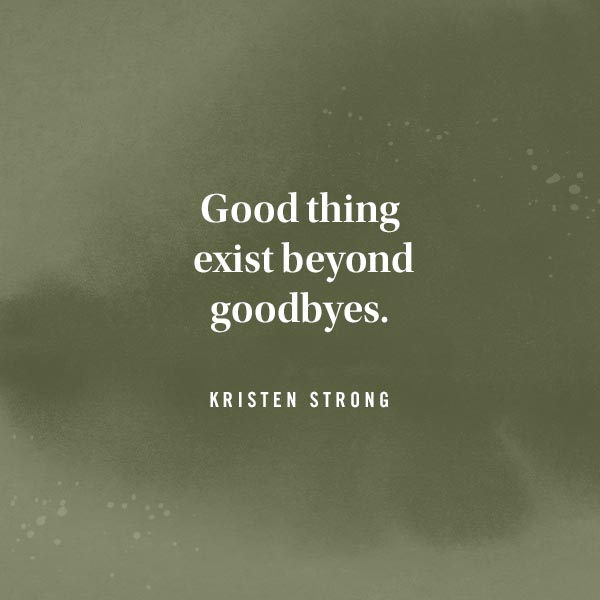
DaySpring 5 things to know when you open the door to an empty (or emptier) nest
God promises us a wonderful future. Eventually, the changing nest will feel less new and more familiar. There is much...
-
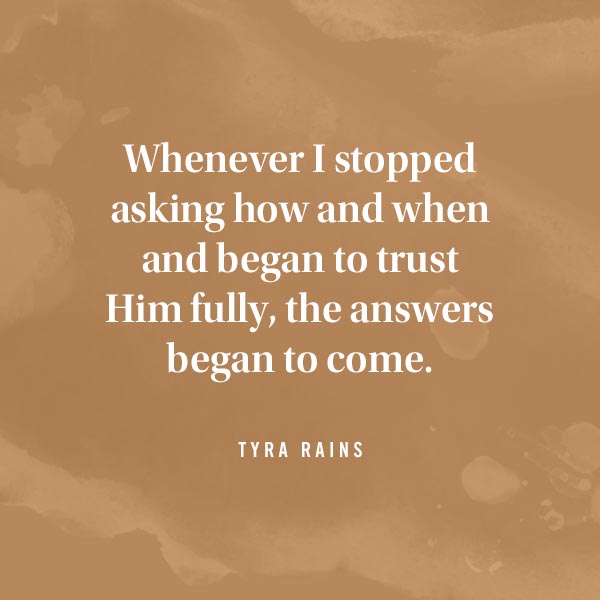
DaySpring Patient endurance is what you need now
When we face circumstances that don’t make any earthly sense, God doesn’t want us to ask how. He wants us to say, “I ...
-
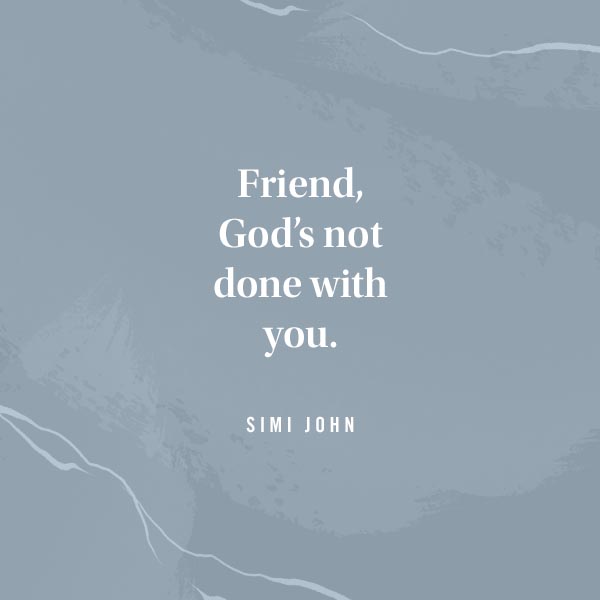
DaySpring Don’t let old jeans make you keep looking back
Friend, God is not done with you. He isn’t disappointed that your gifts and talents look different today than they di...
-
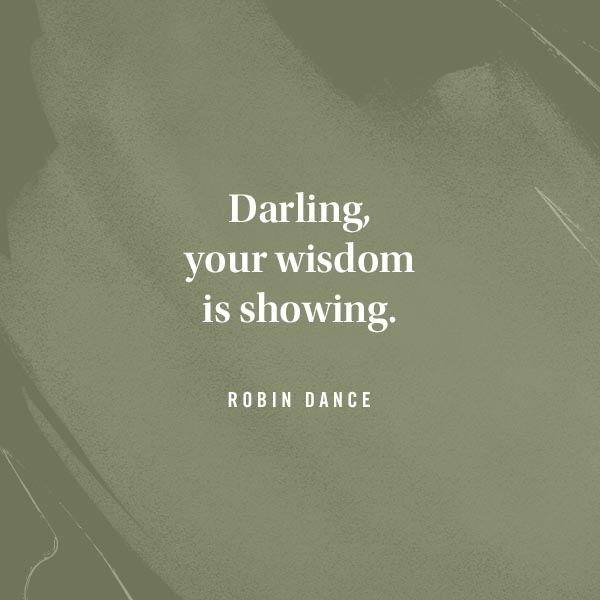
DaySpring When your wisdom is showing
Haven’t you found that the older you get, the better you understand the brevity of life and the value of today? Tomor...
-
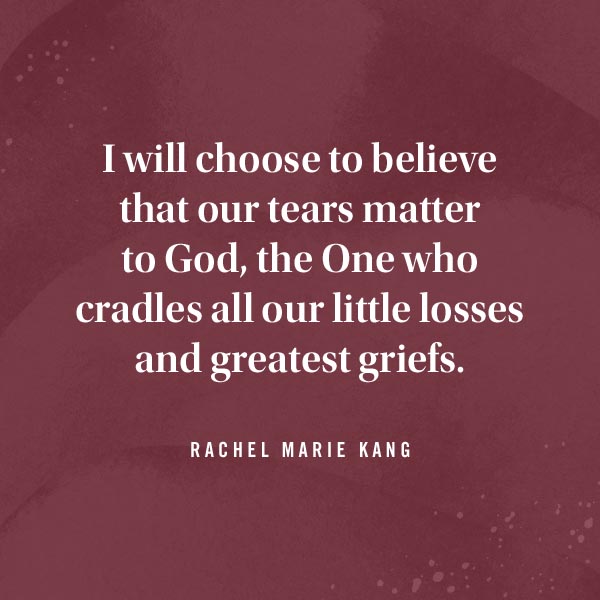
DaySpring For the empty chair at your table
Sometimes. . .we just need someone to acknowledge that the ache is real. Sometimes we just need to hear that while ho...
-
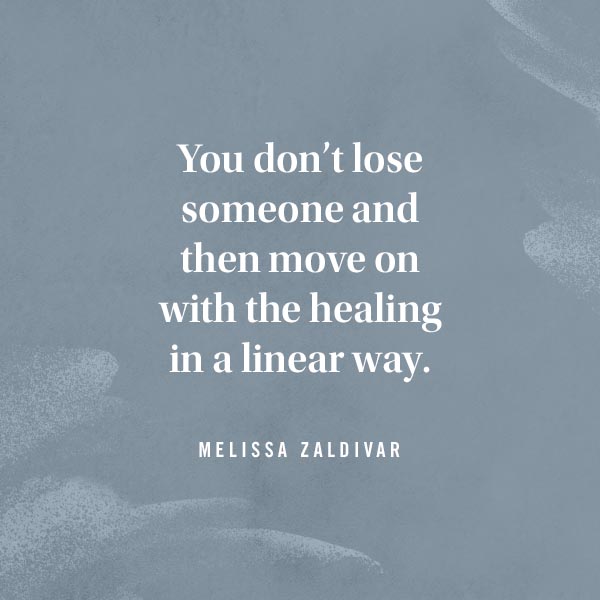
DaySpring I have seen the Lord
You don’t lose someone and then move on with the healing in a linear way. Rather, it resurfaces over and over, and yo...
-
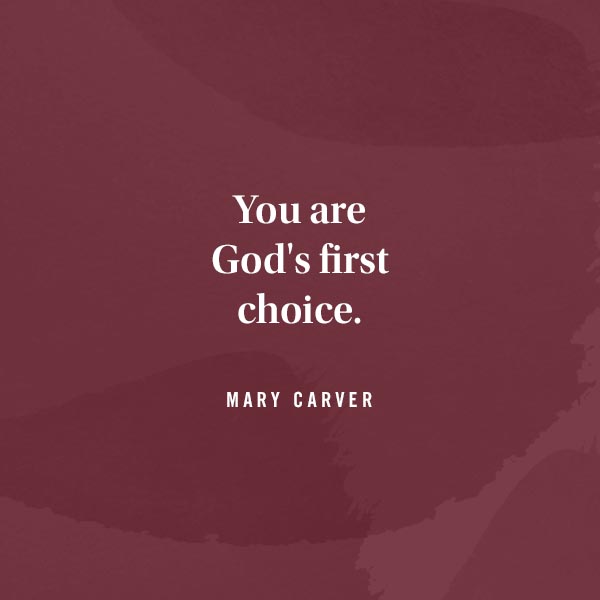
DaySpring When you’re tired of being second choice
If you’re feeling like you’ll never be anyone’s first choice, take heart. You are someone’s first choice. You’re the ...
-
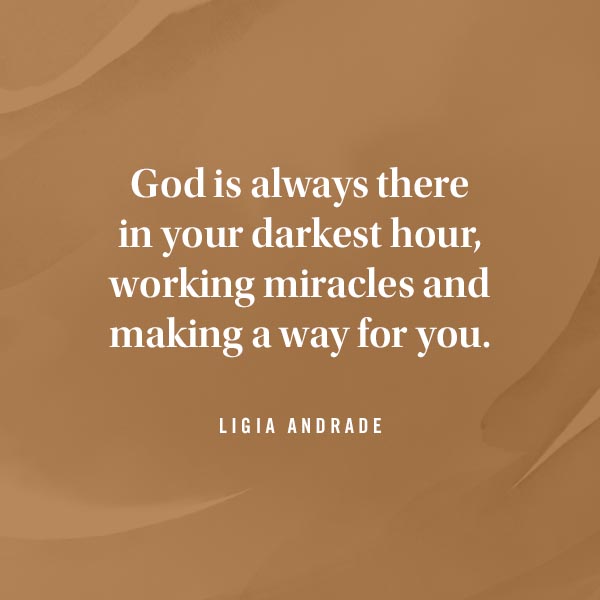
DaySpring The unexpected miracle
No matter how impossible your situation may seem, this moment, right now, is your opportunity to seek refuge in your ...
-
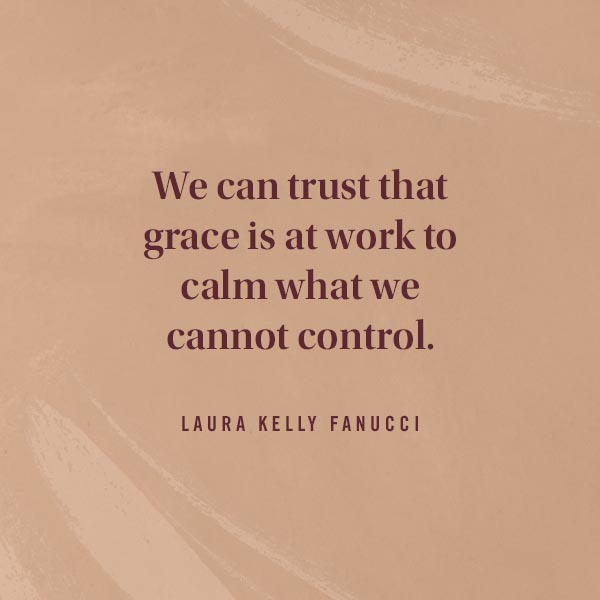
DaySpring Your reminder that Jesus is already in the boat
How often do our texts, emails, and DMs pile up like a heap of prayer requests? Some days I want to step outside and ...
-
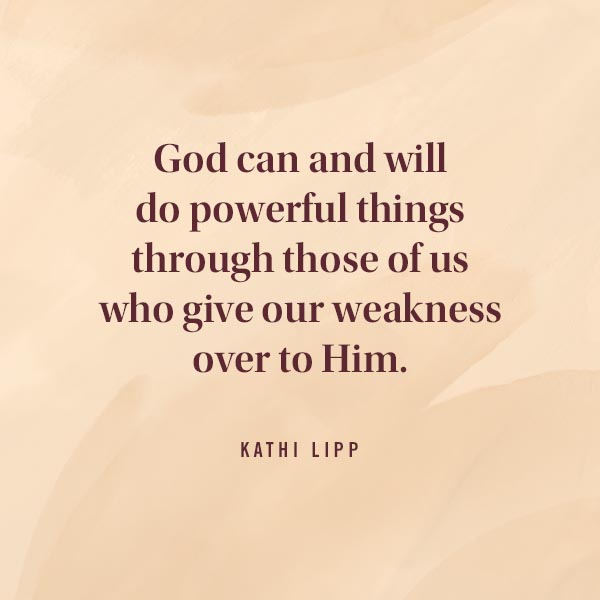
DaySpring Weakness is spelled s-t-r-e-n-g-t-h
People are looking to others to find safety in sharing their own pain. My weakness, to some people, is the shortcut t...
-
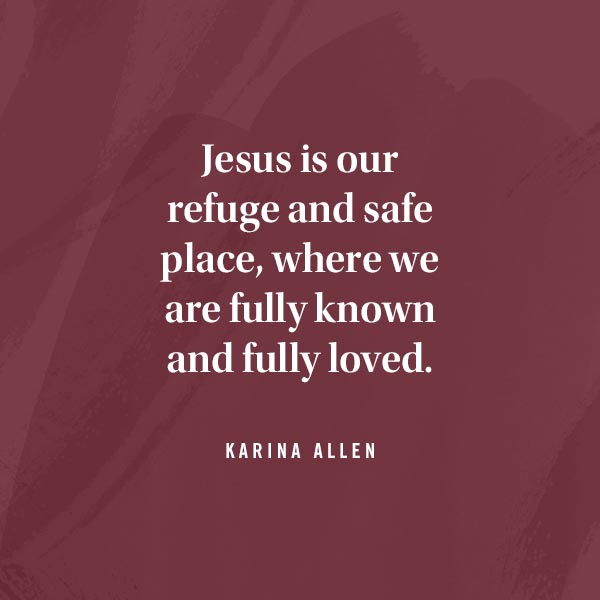
DaySpring Fully loved and always invited by God
Jesus is our refuge and safe place, where we are fully known and fully loved. He is our anchor and firm foundation, a...
-
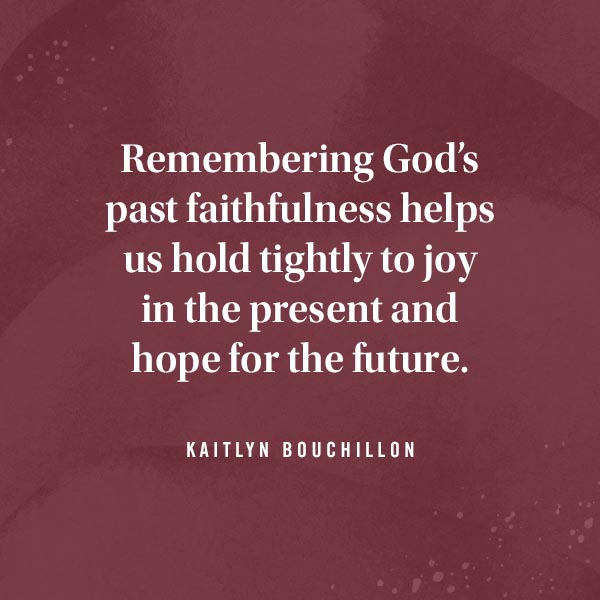
DaySpring For when you find yourself asking God how much longer
God was there then and He’s here now, with us in every waiting room, working for our good and His glory. Remembering ...
-
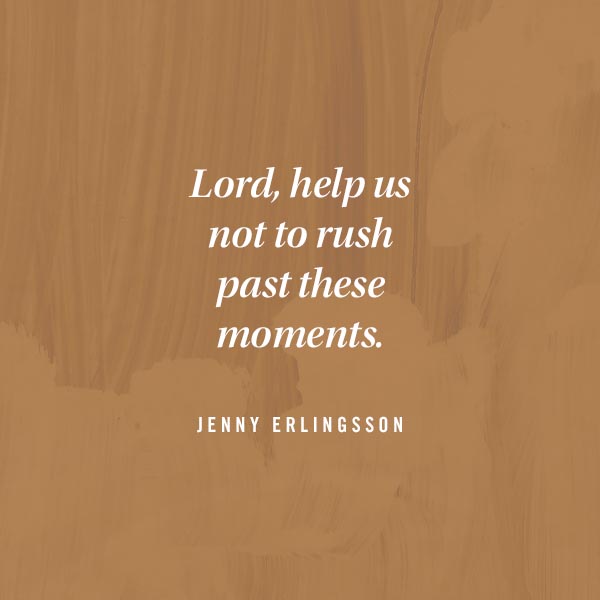
DaySpring Stay a little longer
In our very next breath, before the inhale, between, and after the exhale, He is here. The great I Am creating space ...
-
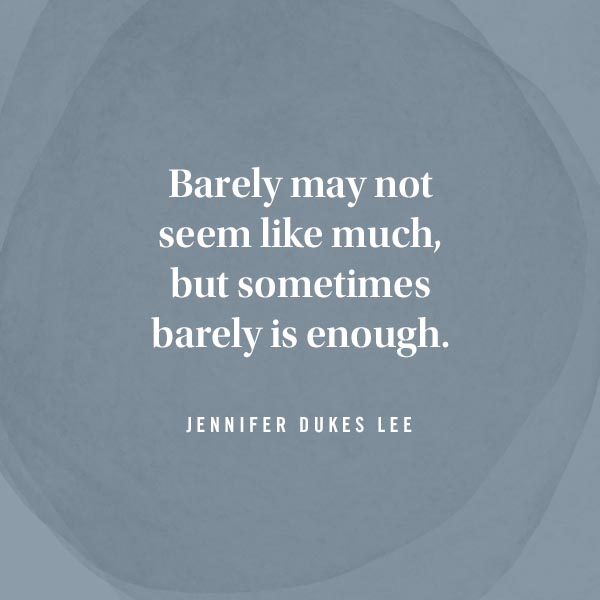
DaySpring Sometimes barely is enough
Here’s the good news: Prayers don’t need to be shouted in order for God to hear them. Sometimes, even your barely-eno...
-

DaySpring When your heart hurts over an adult child
Let’s unclench our fists, raise our open hands, and release our adult children to Him — our Abba Father, Healer, Resc...
-
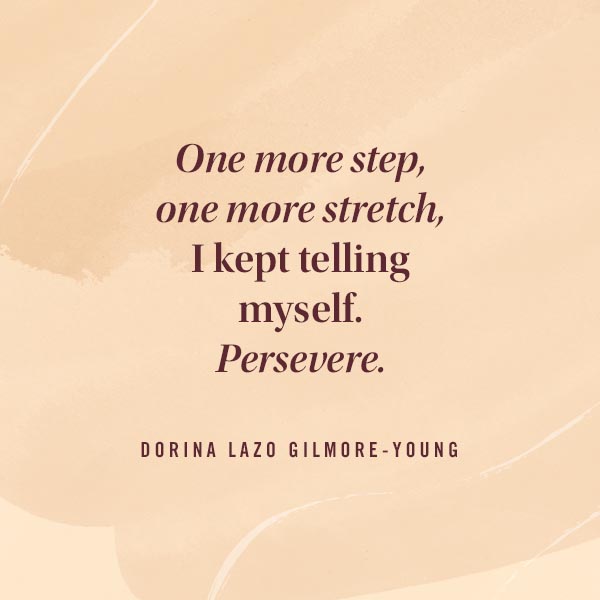
DaySpring When you don’t think you can keep going, take the next step
Some of you are tempted to give up right about now. You are bone-weary and frustrated. You are staring up another uph...
-
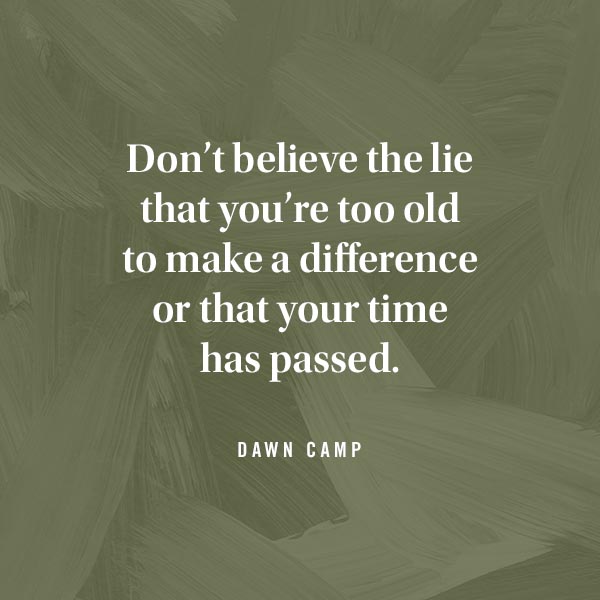
DaySpring Your time has not passed
Here’s the good news, friend: there’s no such thing as being too old to make a difference. God’s plans and purposes f...
-
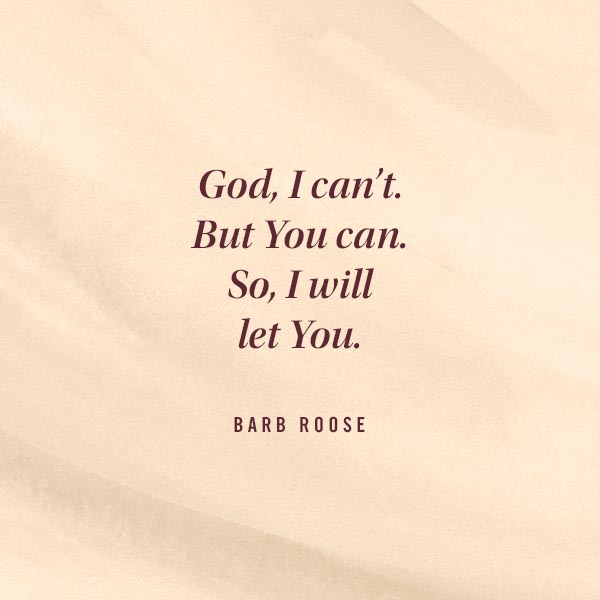
DaySpring Simple surrender prayers for when you need to get out of your own way
Is there a problem or person that you need to surrender to God? It’s hard to admit that you are powerless, but it’s e...
-
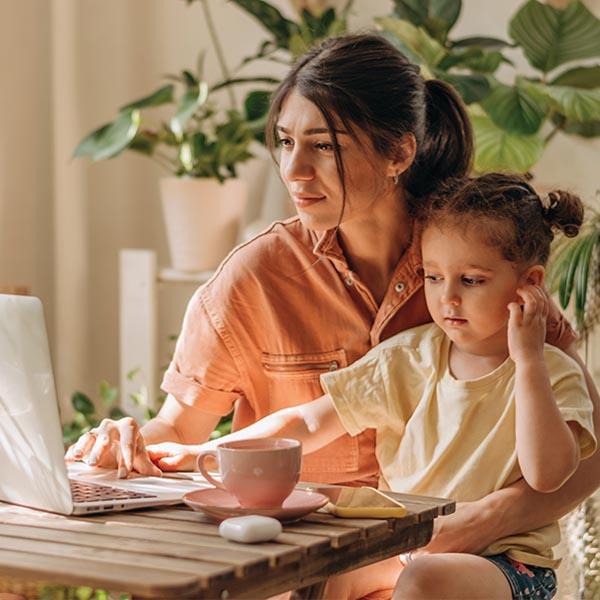
DaySpring A prayer for overwhelmed mothers
Let's pray, asking God to intervene during the overwhelming moments of motherhood so that we can be the moms He creat...
-
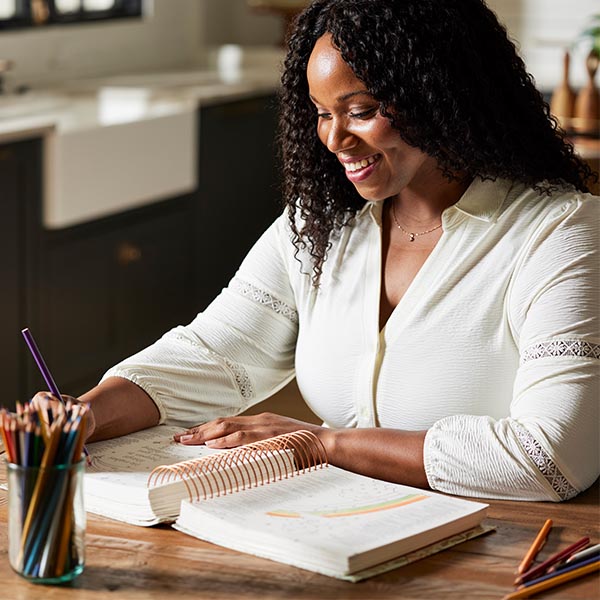
DaySpring 5 easy ways to live your faith
Nothing extraordinary, and yet these five simple ways to live your faith could just change everything!

